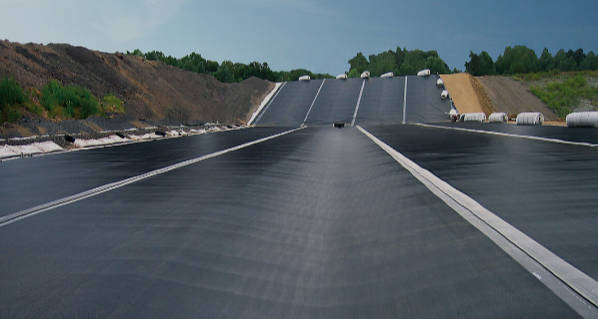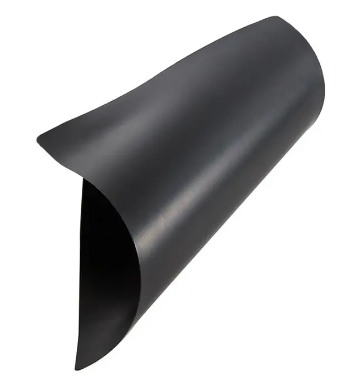- Understanding the Role of Geomembrane Liners in Waste Management
- Innovations in Geomembrane Liners for Water Management
- Geomembrane Liners: A Comprehensive Guide
- The Future of Geomembrane Liners in Civil Engineering
- Geomembrane Liners: Enhancing Landfill Stability
Manager:Alvin Wang
WhatsApp:+62 8983806051
Tel:+86 10-5797-1075
Email:steelwang@okorder.com
Address:3rd Floor, No.2 Building, No.1 Sanlihe Road
Is HDPE geomembrane waterproof?
In various engineering and environmental applications, High-Density Polyethylene (HDPE) geomembrane is an elastic synthetic liner with extraordinary imperviousness to water. Nevertheless, it is important to consider a few factors when evaluating its ability to act as a moisture barrier. This article will explore all these aspects of hdpe Geomembrane in detail; it will also highlight some frequently asked questions about its use for waterproofing purposes.

Understanding HDPE Geomembrane
Composition and Structure:
A high-density polyethylene liner consists of thermoplastic polymer made from ethylene monomer units. It is produced by extrusion process where resin is melted then squeezed through dies into continuous sheets. The resultant product has very few voids or structural defects thus making it impermeable.
Impermeability and Waterproofing
Barrier Properties:
The tightness with which the polymer chains are packed within creates a non-porous network that does not allow any liquid or gas to pass through — this quality makes HDPE liners one among best options for waste containment systems worldwide.
Hydrostatic Resistance:
Resistance against hydrostatic pressure (fluid at rest) exhibited by HDPE lining material is commendable especially when correctly installed; even under heavy water heads such as those found in reservoirs, pond dams etc., there will be no seepage through cracks or joints – thanks should be given here also to good workmanship during installation processes which involve welding together sheets along their edges using hot air guns until they melt into each other forming watertight seals capable of resisting such pressures.
Chemical Compatibility:
When used as liners for chemical storage tanks, industrial effluent treatment plants etcetera where aggressive substances may come into contact with them directly or indirectly through spills/leakages; these polymers offer excellent protection against corrosion caused by most acids/bases/organic solvents thereby acting as effective barriers against any further attack on underlying structures – this is because they have high chemical resistance.
Advantages of HDPE Geomembrane in Waterproofing
Durability and Longevity:
Its lifespan can range between 20 to 30 years under normal conditions which makes it ideal for long-term projects such as landfills, dams/reservoirs etc., where once lined they are not expected to be excavated again soon after completion due to their potential dangers if left exposed into air; besides this also ensures that there will be no need for frequent repairs because of its excellent resistance towards factors like temperature variations (extremes), abrasion resistance from moving objects like rocks or tree roots etcetera hence protecting against infiltration over a very long time span.
Flexibility and Adaptability:
Due its flexibility nature allows it to easily conform over uneven surfaces even those with irregular shapes unlike some rigid materials which could lead gaps being left behind thus allowing water seepage through joints – here therefore we see how important it is during construction works especially when dealing with areas having high underground movements caused by either natural phenomena i.e. earthquakes/volcanic activities or man-made activities e.g. mining operations.
Ease of Installation:
Compared to other traditional methods used in creating water tightness around foundations such as asphalt/bitumen sheets or concrete walls; this type offers faster installation times since pre-fabrication can take place offsite then brought onsite ready for welding/seaming onto prepared surfaces – apart from reducing overall labour costs involved during construction process, it also saves on both material & equipment used making it cost effective solution for many different types waterproofing projects ranging from small domestic jobs up-to large commercial undertakings alike.
Environmental Compatibility:
The fact that these liners do not contain any toxic substances means that there won’t be leaching of such chemicals into ground water systems thereby posing risks to human health as well as ecosystems situated within affected areas – hence the reason why most regulatory bodies worldwide have set standards requiring strict adherence to use only environmentally friendly products during installations of HDPE liners for waste containment purposes.

In the end, there is no doubt that HDPE geomembrane is watertight. This is because it has a compact molecular structure, can resist hydrostatic pressure and is chemically compatible. Its waterproofness, durability, flexibility and ease of installation have made it popularly used for preventing seepage in different sectors such as civil engineering works, environmental conservation programs among others. Be it dams or canals; landfills or hydraulic structures; lining any water-containing vessel demands for HDPE geomembranes so as to guarantee sustainable development through extended service life alongside optimal ecology preservation.
- Previous:What is the life expectancy of a HDPE geomembrane?
- Next:What is the difference between Uhmw and HDPE geomembrane?
-
2024-12-05Geomembrane Liners: A Comprehensive Guide






